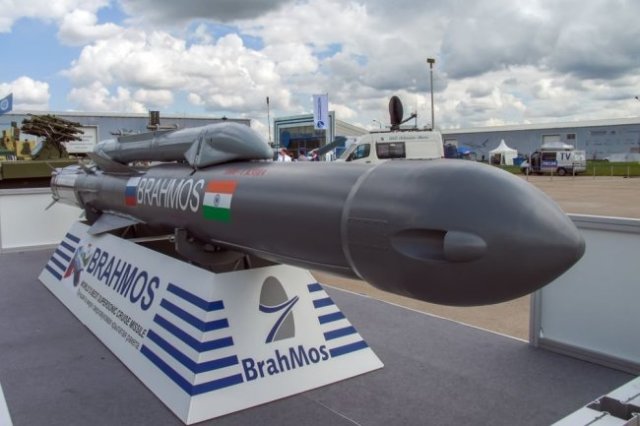TSAMTO, February 1. The Military-Industrial Corporation NPO Mashinostroeniya will soon conclude a contract with the Russian-Indian joint venture BrahMos Aerospace for the execution of the first export order for the supply of the Brahmos KR to the Philippines.
This, as RIA Novosti reports, was announced by the managing co-director of BrahMos Aerospace Alexander Maksichev.
As already reported by TSAMTO, BrahMos Aerospace Private Limited signed a contract with the Ministry of Defense of the Philippines on January 28 for the supply of three batteries of coastal defense complexes based on the Brahmos cruise missile in the amount of $ 375 million.
"In the very near future, taking into account the pandemic, NPO Mashinostroeniya will sign a contract with the Russian-Indian joint venture BrahMos Aerospace for the execution of the first export order for the supply of missiles to the Philippines," A. Maksichev said.
According to him, the contract between NPO Mashinostroeniya and BrahMos Aerospace will involve both work on the creation of a material part and the adaptation of missiles to the requirements of the customer (Philippines).
"All work will be carried out within the framework of the current Missile Technology Control Regime (MTCR), which is aimed at limiting the spread of missiles and missile technologies," A. Maksichev stressed in an interview with RIA Novosti.
The Philippines became the first foreign country to purchase the Brahmos missile system. The developers expect that the deal with the Philippines will contribute to the promotion of Brahmos to other Southeast Asian countries, including Vietnam and Indonesia.
The Brahmos supersonic two-stage cruise missile was developed by the Russian-Indian joint venture BrahMos Aerospace, formed by DRDO and JSC MIC NPO Mashinostroeniya. Various versions of the missile are in service with all three types of the Indian Armed Forces: the Air Force, Navy and SV.
A missile battery usually includes three or four autonomous self-propelled launchers (SPUs), each of which can house three missiles in the TPC, as well as a mobile command post (MCP) that provides each SPU with telemetry data and information about targets and gives the command to strike. The RCC is capable of reaching speeds of up to 3M, carrying a warhead weighing 200-300 kg, hitting targets at ranges up to 290 km. Russia supplies about 65% of the components for the complex, including the power plant and radar GPS. The parties agreed on the issue of intellectual property rights, which made it possible to start promoting the Brahmos KR for export.

